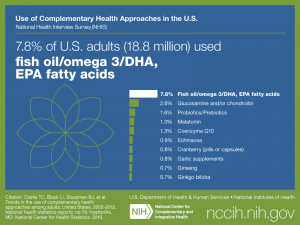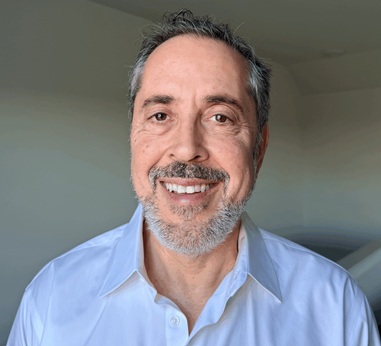NIH (NCCIH) Releases 2012 Survey Results for Natural Health Approaches and Usage
By Glenn Sabin

The National Center for Complementary and Integrative Health (NCCIH) of the National Institutes of Health (NIH), along with the National Center for Health Statistics (NCHS) of the Centers for Disease Control and Prevention, just released results from its 2012 National Health Interview Survey on the usage of complementary and integrative products and modalities among adults and children.
Some interesting findings include:
• 2012 overall usage is about the same, once 2002 and 2007 results were adjusted.
• Yoga usage has nearly doubled among whites, blacks and Hispanics.
• Various therapies and modalities are used complementary to, not in lieu of (‘alternative medicine’) conventional medical delivery.
• An increase of products and modalities to address pain management.
• Herbal medicine usage remains largest category.
• Fish oil and melatonin usage has increase exponentially, while glucosamine, chondroitin and Echinacea usage has dropped precipitously.
• Significant drop in usage among the poor.
Access the complete report here.
I attended the media webinar this morning conducted by NCCIH director Dr. Josephine Briggs and the reports’ (two reports: adult usage and children usage) lead authors.
Enjoying this article? Subscribe and get our latest, delivered straight to your inbox.
Some interesting questions were raised, including by an Associated Press reporter on why vitamin and mineral usage were not captured. Unfortunately, a cogent response was not provided.
I asked Dr. Briggs for her thoughts on how the ‘great recession’ may have impacted usage of complementary and integrative products and modalities, especially given the drop in utilization by the poor. She shared that though this type of data is still being collected by others, these products and services are still largely cash-based and hypothesized that this may have impacted utilization among the poor.
My hope is that the enforcement of the PPACA’s section 2706 will be enforced across the country and access to multi-disciplinarian providers will be more accessible to all.
Access the complete report here.

Glenn Sabin, founder of FON and author of n of 1, is a nationally recognized thought leader who positions health innovators, enterprises, and organizations for sustainable growth. Leveraging deep experience in media, strategy, marketing, and business development—and his own compelling cancer journey—he champions personalized medicine and the generation of real-world data and evidence to help define a new, accessible standard of care.
Read Glenn’s story.




















